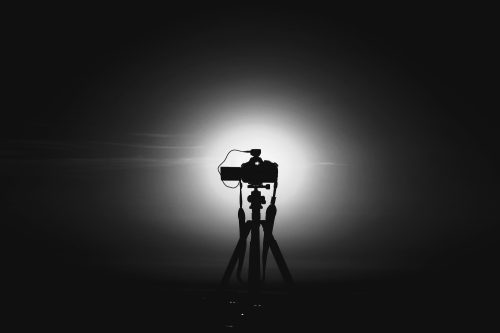I’m living inside the moment, not taking pictures to save it.
—Drake, “The Resistance”
Imagine yourself reaching for your camera-phone as the sun sets beneath billowing clouds, a smear of pale pink on the horizon. You take a picture. And then another. And then another.
We all want to capture the moment. We desire to preserve it forever, salvaging the beauty of everything we see. So we grab our cellphones, our iPads, our digital cameras, and SNAP! We take a few photos to safeguard our memories.
Harmless, right? I mean, look around—everyone’s doing it. You can’t go to a monument, a concert, or even a sunset without scads of pedestrians fiddling with their electronics, trying to save and share the experience.
There seems to be two problems with this incessant picture-taking behavior, and I have been an accomplice to said problem for way too long.
First, by fumbling around with my device, looking for the best angle and filter, snapping the picture, viewing the picture, and then often retaking the shot in an effort to get the “right” photo, I’m missing the actual moment. My desire to capture the moment actually ruins the moment. It makes it less beautiful, less real, and in many ways less photo-worthy.
Second, the “result” is artificial: time doesn’t happen in this kind of take-and-retake way. We don’t get to re-do the experiences of our lives, and yet we take our pictures as if we can “get it just right.” It gives us a false sense of security, a sense we can not only change the moment, but somehow save only its best parts. Yet the best parts exist because of the worst parts, not despite them: we cannot enjoy life’s mountains without its valleys.
Didn’t have a camera by my side this time,
hoping I would see the world through both my eyes.Today I finally overcame,
trying to fit the world inside a picture frame.Maybe you should have seen that sunrise with your own eyes;
it brought me back to life.—John Mayer, “3×5”
During my last vacation, I avoided reaching for my phone to take pictures. Though I was conscious about this choice, I slipped up a few times. Every beautiful sunset, every Wyoming sky, every rushing Montana river, brought with it the Twitch, an urge to reach for my camera-phone and seize the picturesque setting. I resisted, though, and after an instant of hesitation, I was able to enjoy each event for all its worth—not attempting to put a piece of it in my pocket to save for later. I took it all in—right then, right there—enjoying the experience for what it was: a perfect moment.
Don’t get me wrong: I think photography is a beautiful art form. When well-executed, photos are breathtaking. Furthermore, we’re a visual culture, so pictures play a large role in the way we communicate. I’m not going to stop taking photos altogether, but I am going to remain more cognizant of my surroundings. I’m going to enjoy the experience first and embrace the impermanence of the moment. And if an unobtrusive opportunity arises to snap a single photo, then I will. Maybe. Or maybe not. It’s okay to be on the mountain without proving to everyone else you were there to see it.
Read this essay and 150 others in our new book, Essential.

